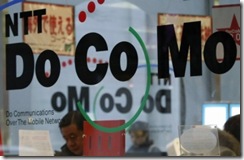South Africa-based Vodacom’s net profits increased by only 3.2 per cent to ZAR3.8 billion (US$363 million) year-on-year, while revenues grew 14 per cent to ZAR26 billion, the operator revealed in its financial results for the six months ending September 30.
 CEO Pieter Uys says Vodacom has focused on increasing non-voice revenue and gaining access to new markets in Africa
CEO Pieter Uys says Vodacom has focused on increasing non-voice revenue and gaining access to new markets in Africa
Of this, the data segment continued to grow rapidly with revenues up 43.3 per cent on last year and which now account for 13.1 per cent of Vodacom’s service revenue.
Operational profit rose 12.5 per cent to ZAR6.4 billion and EBITDA increased by 13.9 per cent to ZAR8.7 billion.
Vodacom also grew its group customer base to 35.7 million subscribers in five countries, an increase of 13.1 per cent from the same period last year. The vast majority of subscribers are in the operator’s home market with 25.2 million customers in South Africa, 4.9 million in Tanzania, 3.8 million in the Democratic Republic of Congo, 1.3 million in Mozambique and 450,000 in Lesotho.
Total ARPU increased 5.7 percent to US$10.60 and South African ARPU increased 8.2 per cent to US$12.60, which is attributed to strong growth in data revenue and as a result of a more aggressive prepaid deletion rule.
“As we evolve, we’ve increased the non-voice share of our business and increased the portion of our business coming from high growth markets outside South Africa,” stated CEO Pieter Uys. “With the intended acquisitions of Gateway Communications and StorTech announced in August, we have opened up further opportunities in servicing the total communications needs of corporate clients and we have gained footholds in important new markets across Africa.”
Uys notes that another significant event that took place during the half-year was the completion of Vodacom’s ZAR7.5 billion BEE (Black Economic Empowerment) transaction.
“The YeboYethu public offer, a large component of the transaction, proved hugely popular and was almost three times oversubscribed. We were particularly successful in promoting broad-based ownership, gaining more than 100,000 new shareholders – almost 60 per cent of which had applied for the minimum number of shares,” Uys commented.
Vodacom’s owners are South Africa’s Telkom and the UK’s Vodafone, the latter obtaining approval in early November to raise its stake to 65 per cent .


 Nawras CEO Ross Cormack is thrilled to gain access to Oman’s fixed-line and broadband market
Nawras CEO Ross Cormack is thrilled to gain access to Oman’s fixed-line and broadband market



